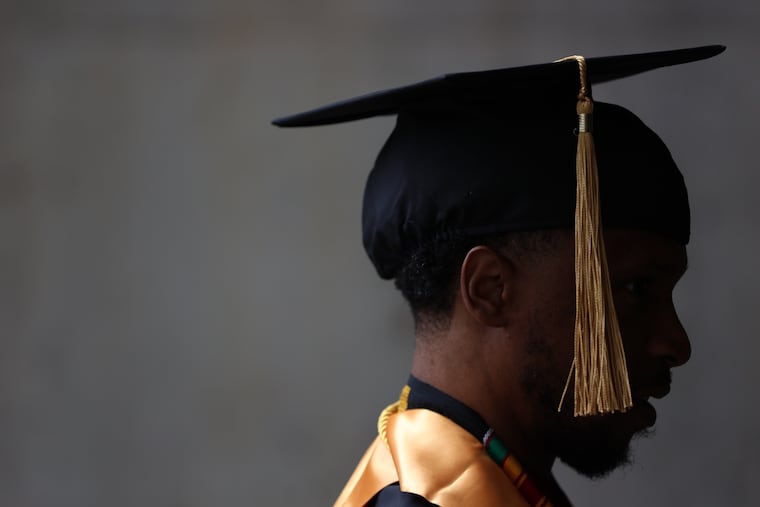Community College of Philadelphia is one of the institutions that can play a crucial role in helping to lead Philadelphia to its full potential, so we need to stop treating it like a lesser option and start prioritizing it for funding, attention, and other resources. CCP is “the People’s College,” the place that welcomes every learner who wants more opportunities, trains most of our city’s workers, and holds the keys to social mobility.
When you consider what CCP accomplishes, think about the technician who takes the images for your mammogram, the childcare director who oversees your toddler’s daycare program, a pharmacy technician, a city code inspector, a SEPTA mechanic, Rhodes scholars, City Council members, and thousands of nurses from the best nursing school in the region. Most CCP students come from Philadelphia, and our graduates tend to stay in Philadelphia.
You may be thinking, “Don’t innovation and progress come from the many other four-year colleges and universities in the region?” After all, the media direct far more focus on such institutions. That’s a big mistake.
Community colleges usually say yes when other institutions say no, offering numerous flexible and relatively affordable ways to move beyond high school degrees and into jobs that allow families, and consequently our city, to thrive.
Some CCP certificate and associate degree programs translate into employment and earnings outcomes that are comparable to some bachelor’s degrees. And research finds that studying at a community college improves adults’ health and well-being, lowering the costs of social services and healthcare to city taxpayers.
Public two-year community colleges typically receive about half as much funding per student compared with four-year public higher education institutions.
The budget for CCP is supposed to be drawn from three sources: City Hall, Harrisburg, and student revenue, which should each make up an equal third of the cost of running the college.
But city and state officials have consistently failed to fully honor that arrangement, meaning students have shouldered a disproportionate share of the load for funding CCP. During the 2023-24 academic year, for example, student revenue accounted for $54 million, while the state’s contribution was $40 million, with $39 million from the city.
Why do CCP students, who overwhelmingly come from families earning less than $30,000 a year, receive the least financial aid and struggle the most to afford the basics, like rent and food, while going to school? The simple answer is politics. The more complex answer includes elitism, stigma, racism, wealth inequality, and shortsighted decisions.
This is a problem our city and state leaders can and should solve — now.
The Philadelphia School District needs a partner that offers open doors and meaningful pathways to living wage jobs. Local businesses need a partner to support the upskilling and reskilling of adults navigating an ever-changing economy.
Philly hospitals and schools need far more trained workers, fast. The solution in all of these cases is to invest in the college that already knows how to do this work, and simply needs more support — and more effective leadership — to scale its efforts.
The stakes are high. Today’s onslaught against higher education hurts those with the least far more powerfully than it impacts wealthy institutions and their more likely to be well-off students.
Further, CCP is facing budget cuts from all directions, cuts that will hit the core of its operations. Our people are dealing with increased living costs and a shredded safety net, and earn far less than most of our peers.
Students are struggling to afford bus passes, childcare, housing, and the increased cost of living.
Because of Medicaid and SNAP cuts, some will have to step away from college entirely. There are fears Harrisburg will balance the budget on our backs yet again. We are rapidly heading toward a financial crisis if action isn’t taken soon.
Given that Pennsylvania is almost dead last in higher education funding, there is much work to be done to expand the political imagination — and collective will — of city and state leaders. And we can’t do it alone. We need your help to get there.
Today’s onslaught against higher education hurts those with the least far more powerfully than it impacts wealthy institutions.
The next time you get frustrated with the direction our city is taking, please speak up for Community College of Philadelphia. Remember our valuable and essential work. Champion CCP’s potential.
Pay attention to our search for a new president, who will be crucial for protecting our financial future and fostering new partnerships. And most importantly, tell your state legislators, Gov. Josh Shapiro, City Council members, and Mayor Cherelle L. Parker to prioritize the People’s College before it’s too late.
Marissa Johnson Valenzuela is an associate professor of English at Community College of Philadelphia and a 2020 Pew Center for Arts and Humanities fellow.
